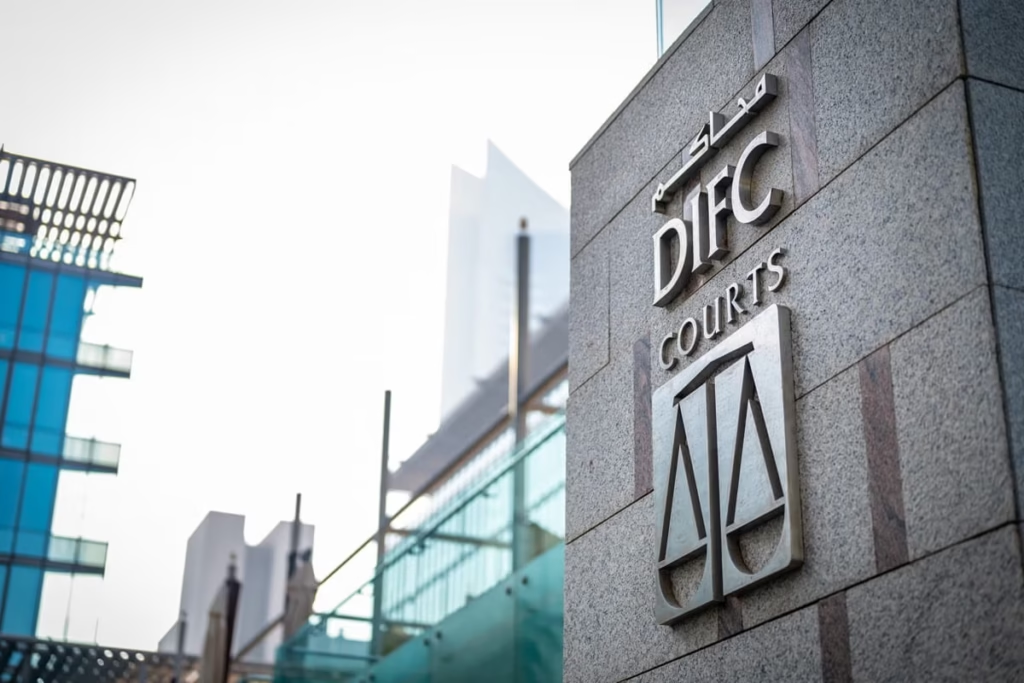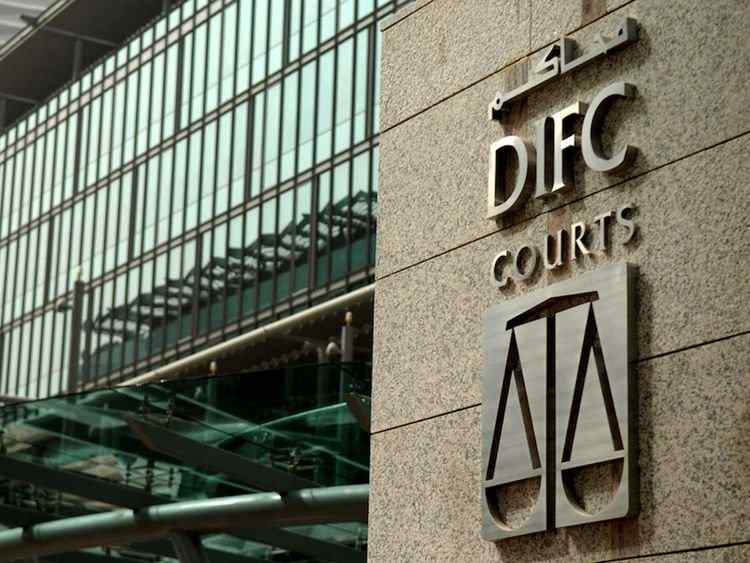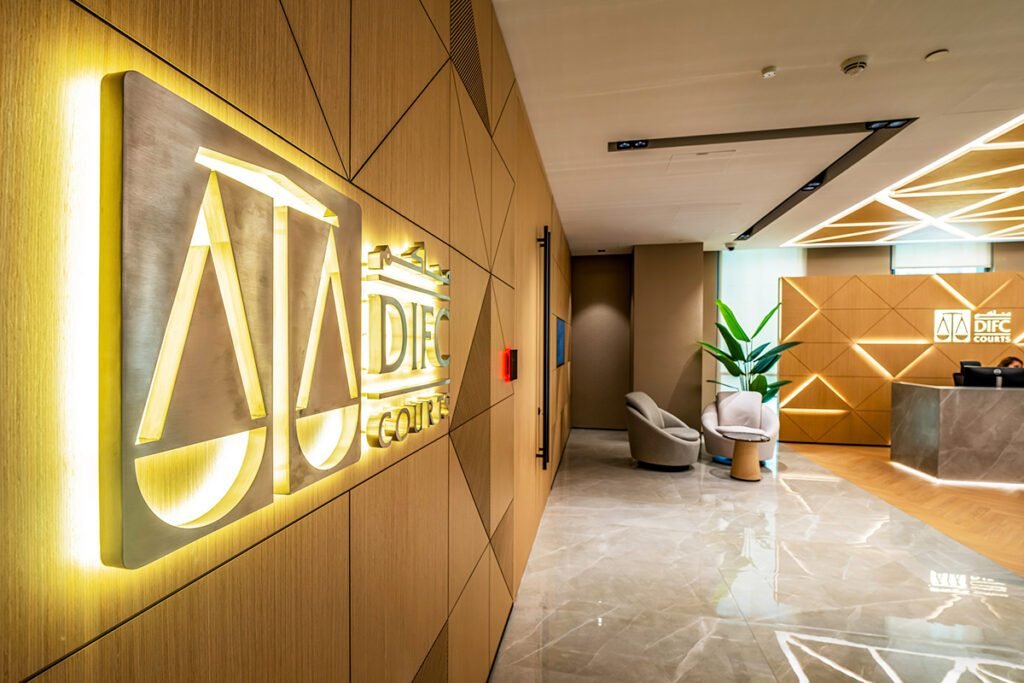The DIFC Courts claims rise by 38% in the first half of 2025 is a strong indicator of Dubai’s growing prominence as a legal and business destination. According to official figures from the Dubai International Financial Centre (DIFC) Courts, claims filed between January and June 2025 reached AED 6.2 billion, or approximately USD 1.7 billion. This marks a significant increase from the same period last year.
This growth is not just a legal milestone but a reflection of Dubai’s successful transformation into a global center for financial and legal services. Businesses around the world are increasingly looking to DIFC Courts for dispute resolution, drawn by their modern systems, international standards, and strong enforcement track record.
Understanding the Growth in Claims
The rise in claims has been widespread across all divisions of the DIFC Courts, from high-value commercial litigation to small-scale disputes involving individuals and small businesses.

In the Main Court of First Instance, claims reached a total value of AED 4.9 billion. These cases often involve large multinational corporations and span sectors such as construction, finance, and corporate disputes. The average claim size was approximately AED 125 million, reflecting the high-stakes nature of cases brought before this court.
The Small Claims Tribunal also saw a major increase in activity, with the total value of claims reaching AED 200 million, up by 41 percent compared to the same period in 2024. The SCT handles employment-related issues, landlord-tenant matters, and disputes involving smaller business contracts. One of the key strengths of the SCT is its accessibility—93 percent of its hearings in the first half of 2025 were conducted remotely, making it easy for individuals and SMEs to engage with the legal process.

Meanwhile, the Court of Appeal handled 25 cases in the first half of the year, up from 18 in H1 2024. Most of these involved cross-border enforcement, procedural reviews, and complex jurisdictional questions.
Together, these figures show a comprehensive expansion across all levels of the DIFC Courts, indicating broader trust and reliance on Dubai’s legal framework.
Why the DIFC Courts Are Gaining Global Attention
The courts operate under English common law, and all proceedings are conducted in English, which makes them familiar and accessible to international litigants. This legal framework offers clarity, predictability, and neutrality—essential elements for businesses operating in multiple jurisdictions.
Another major reason for the growth in DIFC Courts claims is the strong digital infrastructure. Since the pandemic, the courts have invested heavily in technology. From e-filing to virtual hearings and blockchain-based legal services, the DIFC Courts are recognized as among the most technologically advanced in the world. These digital tools ensure fast case progression and reduce the need for physical presence, a significant benefit for global clients.
Equally important is the enforceability of DIFC judgments outside the UAE. Thanks to more than 40 memoranda of understanding with foreign judicial bodies and arbitration centers, the DIFC Courts have created strong legal pathways for international enforcement. This has boosted confidence among foreign investors, who know their rights can be protected and enforced across borders.
Specialized divisions within the courts also contribute to their appeal. These include the Technology and Construction Division, the Digital Economy Court, and the DIFC Wills Service Centre. These units focus on resolving disputes in rapidly growing and complex sectors such as fintech, real estate, digital services, and personal asset planning for non-Muslims.
What Business Leaders and Legal Experts Are Saying
The success of the DIFC Courts is reflected in the feedback from those who use the system. Business leaders and legal experts have voiced strong support for the courts’ approach and efficiency.
James Marshall, CEO of an international tech firm based in DIFC, said, “We had a complex intellectual property dispute that we handled through the DIFC Courts. The process was smooth, fast, and entirely online. It saved us months compared to going through traditional legal channels.”
Fatima Al Nuaimi, a legal consultant from a regional law firm, noted, “There’s a noticeable shift. Regional and international clients are increasingly asking about DIFC as a preferred legal venue. The courts’ transparency, speed, and professionalism are unmatched in the region.”
For smaller players, the experience is equally positive. Hassan K., an SME owner in Dubai, shared, “As a small business, I was nervous about going to court, but the Small Claims Tribunal made the process easy. I submitted everything online and had my hearing in a week.”
These testimonials reflect a growing trust in the DIFC Courts system, not just among large corporations, but also among small and medium-sized enterprises.

Supporting Dubai’s Economic Vision
The growth in DIFC Courts claims isn’t occurring in isolation. It’s part of a broader strategy by Dubai to become a global hub for business, finance, and innovation. A trusted and efficient legal system is crucial to achieving that vision.
Investors and multinational firms often assess a region’s legal system before deciding to set up operations. With DIFC Courts offering reliable and enforceable legal solutions, Dubai becomes a much more attractive location for global investment.
At the same time, the courts are helping level the playing field for smaller businesses. Through the SCT, entrepreneurs and startups can access legal remedies quickly and affordably, which encourages innovation and helps businesses grow in a safe and fair environment.
DIFC Courts also play an important role in supporting the tech sector. With courts tailored to the digital economy and a strong focus on smart contracts and data-related disputes, they are helping provide legal clarity in industries that are constantly evolving.
The Rise of Smart Legal Tools
The courts are leading the way in legal innovation through digital tools that make justice more accessible. In 2025, several new features were expanded to better serve users.
The Smart Judge app offers legal predictions and early guidance to potential litigants, helping them assess the strength of their case before filing. The app has gained popularity among individuals and small business owners who are unsure about whether to proceed with legal action.
Another notable innovation is the Digital Wills Service, which allows non-Muslim residents to create and register wills online. This service ensures that individuals’ assets are protected and distributed according to their wishes, with international recognition.
An AI contract reviewer tool was also introduced to assist businesses in checking contracts for common risks and compliance issues. This helps prevent disputes before they occur and saves both time and money.
How DIFC Compares to Other Legal Hubs
Cities like London, New York, and Singapore have long been regarded as the leading centers for commercial dispute resolution. However, DIFC is fast catching up thanks to its legal infrastructure, global accessibility, and focus on innovation.
The courts’ use of English, adherence to common law, and digital-first approach set them apart in the Middle East and North Africa region. Combined with strong government support and attractive business policies, Dubai is now a serious competitor on the global legal stage.
Dubai’s location is another advantage. Situated between Asia, Europe, and Africa, it offers convenient access to businesses operating in different time zones. This geographical advantage, coupled with its world-class infrastructure, makes it an ideal venue for resolving international disputes.

Looking Ahead: What the Rest of 2025 May Bring
The first half of 2025 has been a record-setting period for the DIFC Courts, but signs point to even greater momentum in the months ahead.
Experts anticipate a further rise in digital economy-related cases, particularly in areas such as data privacy, fintech disputes, and intellectual property. The courts are expected to deepen partnerships with judicial authorities in Asia and Africa, making enforcement even smoother for cross-border cases.
There are also plans to expand the use of AI and blockchain technology in court operations, which could streamline case management and reduce resolution times even further. These developments are likely to reinforce the DIFC Courts’ position as a global leader in legal innovation.
Conclusion
The DIFC Courts claims rise of 38 percent in the first half of 2025 is more than just a legal statistic. It reflects the growing global confidence in Dubai’s ability to deliver fair, fast, and efficient justice. From large corporations to individual entrepreneurs, more people are turning to the DIFC Courts to resolve their disputes.
With a strong legal foundation, digital tools, international recognition, and user-centric innovation, the DIFC Courts are setting new standards for what a modern legal system can achieve. As Dubai continues its journey to become a top global business and legal hub, the courts will remain central to that success story.
Do follow UAE Stories on Instagram
Read More: How Do I Open a Bank Account as an Expat in Dubai?














